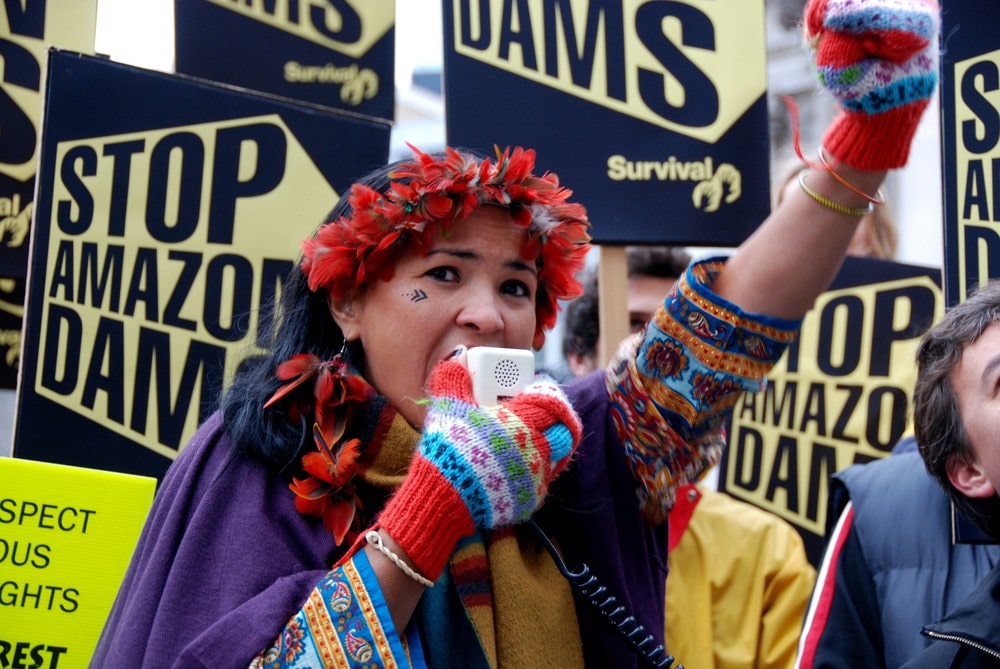- About
- Topics
- Picks
- Audio
- Story
- In-Depth
- Opinion
- News
- Donate
-
Signup for our newsletterOur Editors' Best Picks.Send
Read, Debate: Engage.
| December 17, 2018 | |
|---|---|
| topic: | Economic Fairness |
| tags: | #Zimbabwe, #Green Fuel, #Ethanol, #environment |
| located: | Zimbabwe |
| by: | Cyril Zenda |
However more than three weeks after the start of the rains, Takawira Mapurisa (34), a villager in Chisumbanje, in the southeastern part of Zimbabwe, has not started doing anything. This is because he and his two brothers – who are additionally married and have children of their own – have been told by officials from Green Fuel, the ethanol firm that has for the past decade been seizing land from peasant farmers as it expands its sugarcane plantations, that they should surrender the five hectares that stayed with them when the other 25 hectares were taken a few years ago. This effectively leaves Takawira’s family and those of his two brothers without any piece of land.
“We don’t know what to do,” Takawira said. “In the past few years we have tried to share the five hectares that had left when the company grabbed most of our family land, but now that little is being taken away.”
This is the plight that faces more than 2000 families in Chisumbanje and Middle Sabi areas of south-eastern Zimbabwe where ethanol firm, Green Fuel, which started operations a decade ago, continues to seize land from the hapless communal farmers without relocating them to other areas or compensating them.
When Green Fuel, started its operations in south-east Zimbabwe ten years ago, it was passed off as a miracle that was going to transform the lives of communities in this arid region. However, a few years later, reality has dawned on the villagers. The company has indeed changed the lives of the communities… but for the worse. So far more than 10 000 villagers have lost their land, livestock and are on the verge of losing what has remained of them: hope.
“Our grievance with Green Fuel is that is it expanding towards communal areas and we don’t know what will become of us,” said village head Muyondosi (71).
The headman reads the community’s long list of grievances against Green Fuel, which start from arbitrary land seizures, the seizure of cattle that stray towards the lands grabbed by the firm in search of pastures, the pollution of communal water sources, and exclusion of locals from employment, among others.
These are the same issues that were highlighted by a Parliamentary committee in 2015 which recommended that villagers be relocated to other areas and compensated but was not acted on.
Green Fuel is owned by two private companies, Macdom and Rating Investment, which belong to controversial business tycoon Billy Rautenbach, with a state para-statal, the Agricultural and Rural Development Authority (ARDA) – on whose estate firm’s operations originally started – having a nominal 10% shareholding.
Green Fuel operations started on the 5,100 hectares of ARDA estates, but are now covering over 15,000 hectares as the company encroaches into the lands owned by the peasant farmers. Its target is to reach 45 000 hectares by 2023 which means more villagers are at risk of losing their land.
The company was controversially awarded a licence to produce ethanol by former president Robert Mugabe’s government for blending with imported petroleum fuels with the intention of reducing the country’s fuel import bill when the country was in the throes of serious foreign exchange. A controversial law was later passed to make fuel blending mandatory, creating a ready market for the company which promised to produce at least 450 million litres of ethanol per year, but as of 2017, production was only 78 million litres.
Originally the idea was to supply the local market, before exporting the ethanol to other countries in the southern African region, but the company has failed to meet any of its targets mostly because of community and consumer resistance.
Community activist and Platform for Youth Development (PYD) director, Claris Madhuku, accused the government of failing to solve the long-running dispute and he said his organization is working with some human rights lawyers to seek a court order to stop any new land seizures.
“We have been having a meeting with the villagers and the local leadership and we are going to get the court to stop this,” Madhuku said.
At the time of writing, the Green Fuel’s spokesperson, Nicole Rautenbach, had not responded to questions sent to her.
The overuse of land for the production of biofuels has been linked to land disputes and food shortages and it looks like the Zimbabwean experience is not going to be an exception.
By copying the embed code below, you agree to adhere to our republishing guidelines.
